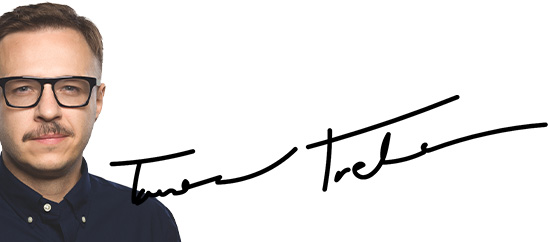Investment fund
...from a managerial perspective
Do you have questions?
Write to me
The main core of my professional business for years was centred within a Hong Kong private investment fund, which operated as a so-called family office. Unfortunately, until then the barrier to entry was so high that few could afford to join.
Fortunately, from 2022, courtesy of a small European principality, I have launched a brand new full-fledged hedge fund within its jurisdiction aimed at individual clients who do not (yet) have fat millions in their accounts.
Why so?
I think I've tried everything in the investment world.
Abroad I ran individual asset management services, in Poland I worked with a licensed brokerage house, globally I advised boutique family-office managing the wealth affairs of a handful of so-called HNWIs, or High Net Worth Individuals.
All these businesses had one thing in common. Each was based on high fixed fees charged monthly to clients, regardless of portfolio performance. Success fees were, of course, part of the manager’s remuneration, but even so, as much as 3-4% of the fees took a fixed form on an annual basis. This seemed to me to be a little too much in relation to the real costs of running the fund.
So I started looking for entities where I could run portfolios based solely on success fees or possibly with a minimum management fee. It was an enlightening experience. I was knocking on the doors of closed-end funds and on the doors of brokerage houses, and their CEOs were knocking their heads.
In this industry, the interests of the customer seem to be of secondary importance to managers. Few managers here have an incentive to give their best because few are fairly rewarded for doing so. In a situation where, regardless of the outcome, 3-4% of fees per year flow into the fund, the priority becomes raising as much capital as possible and attracting new clients all the time, rather than making money for the existing ones.
Therefore, the greatest efforts go into marketing, entering competitions, being present in the rankings, attending galas, conventions, raffles and at gussied-up dinners with potential new clients. Management of the current portfolio takes a back seat. Results are secondary. What matters is cash-flow and raising new capital.
This is what this world looks like. Only this world, it’s not my world.
That is why I have stood on my head to create a classic hedge fund that limits fixed fees to the absolute minimum needed for its operation and my remuneration consists solely of a success fee dependent on the net result. If my investors don’t make money, I don’t make money either. In this way, we are all in the same boat and I am motivated to keep growing my current portfolio.

What is my fund not?
It is certainly not a place to speculate for people with unrealistic expectations.
I don’t even talk to investors who expect returns of several tens of per cent a year and ask why I don’t have Bitcoin in my portfolio, why I don’t play forex and why I didn’t bet everything on CD Projekt shares.
Mutual funds are called investment funds for a reason. My philosophy is to look for the best companies in the world, with the best management in the world, with the best products in the world and with the best balance sheet in the world. I give these companies the fund’s money and they use it to come out with an even better product and show an even better financial statement after a few quarters. That’s what investing in the original sense of the word is all about and that’s the approach I stick to.

Firstly: fair play
-

Minimum fees
-

High Water Mark
-

Short lock-up
-

Full liquidity
Secondly: investor convenience
-

Low fund entry threshold
-

Strong settlement currency
-

Power of attorney system
-

Quarterly valuation and online report
Thirdly: algorithms
I believe that the investment world has just entered an era from which there is no return. The development of artificial intelligence, machine learning, pattern-recognition and dependency-detection algorithms is now so advanced that failure to exploit their advantage in the stock market spells the beginning of the end for any fund.
That is why I set myself the goal of combining the strengths of human managers with the possibilities offered today by artificial intelligence and all-powerful algorithms, all with the aim of achieving synergies to help beat the market.
So in our flagship fund we use the experience of people, but people equipped with unique proprietary algorithms. And all this to gain an edge over passive investing and over most purely automatic strategies. The investment results already achieved in the first quarters of operation are the best proof that we are heading in the right direction.
For more information about the proprietary system we use to analyse companies and manage portfolios, please follow the link: SCRAB.
Who is my fund for?
Above all, I care about investors who understand that it is not the amount of individual profit during a given year that is the most important element, but that it is the sustainability of this profit over the long term that plays a key role.
Compound interest is what I am aiming for and what I want to maximise over a broader multi-year time horizon. Quick profits look good in The Wolf of Wall Street, but in the real world such an adventure sooner or later ends in bankruptcy.
That is why I focus on a calm and balanced development that provides investors with the highest level of comfort and stable capital multiplication and a peaceful night’s sleep every night. This is how I see my role and I feel most comfortable working with investors who share the same balanced approach.
However, there is no denying that the risk of double-digit capital fluctuations is real, so I talk to each investor about this beforehand and try to explore whether an investment with us would be suitable for that particular person, their horizon, goals, expectations and risk tolerance.
Counter-intuitively, this is very important because not everyone realises that any investment, especially in equities, involves some level of risk and the possibility of losing capital.
Taking a risk to make a profit is not necessarily a bad thing in itself, provided you are aware of the potential consequences and take that risk consciously.
Do you have questions?
Ask them in the form below. Your data will only be used for the preparation of your answer.